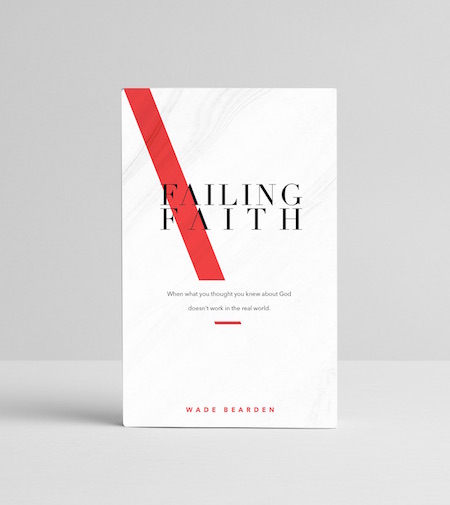
Fasting never came easy for me. I couldn’t quite grab the concept. At twelve, I remember staring at my friend’s bubbly, swirling cup of Coca-Cola, wondering why I decided to give up soda for an entire month. At fourteen, I almost passed out during a fast. At fifteen, I was done. Pass the cookies before someone gets hurt.
During college, I brought snacks to church. Bringing snacks to church is a real rush. It’s not quite sneaking candy into a movie theater rush, but it’s definitely above the texting in class rush.
I remember eating a granola bar while sitting through sermon on fasting. I couldn’t tell if the couple two rows up passed me dirty looks because of my noisy wrapper or because I was eating a granola bar while sitting through a sermon on fasting. When I eventually stopped and listened to the message, I couldn’t help but laugh. Irony is hilarious.
A piece of me must have tapped into some warehouse of curiosity because I spent two hours that afternoon breaking in a new set of Bible commentaries. I needed to figure this fasting thing out.
A few questions gnawed at me:
Is fasting only about giving up food—or even something you love—for a short period of time? Why is fasting important? Is the point of fasting to have more time to pray/read the Bible?
A few weeks before, I read a fascinating discussion on fasting from author Donald Miller. He argued that fasting is, in many senses, a symbol of grief. When we fast, we mourn.
With this thought swirling around in my mind like a cup full of bubbly Coca-Cola, I began to study Mark 2:18-22. In Mark’s narrative (and the other parallel passages found in Matthew and Luke), Jesus is asked why his disciples aren’t fasting like the Pharisees or the followers of John the Baptist. His response to their (veiled) accusation comes in the form of a parable connecting the practice of fasting to a wedding party. Because really, who doesn’t like to party?
“Can the wedding guests fast while the bridegroom is with them? As long as they have the bridegroom with them, they cannot fast” (19).
Wedding guests eat when they’re at a reception. Why else would men attend a wedding? It’s a celebration. It’s a party. Fasting specifically during a wedding is a slap in the face to the couple who has prepared a feast for their guests.
In ancient Israelite culture, feasting represented more than food. It was a celebratory act paralleling the joy one finds when God’s kingdom breaks into the world, defeating evil for good. The opposite is also true. Fasting food or refraining from feasting is not a sign of celebration, but of mourning or grief.
Much like you wouldn’t lament a marriage ceremony—unless you’ve been in love with the bride since you were twelve—Jesus’s physical presence on earth requires joy, not sadness. This is why the disciples didn’t fast while they were with Christ. Why would they? The kingdom has come in Jesus. He’s right here.
I love the sarcasm that comes next. Jesus says fasting in his situation is like patching up a hole in your shirt with a brand new piece of un-shrunken fabric or putting unfermented wine in something that has already been stretched to its limit. Both are the equivalent of inserting a BluRay disc into a DVD player or trying to update Twitter on your Motorola Razr. We can’t expect the old to fit the new.
Awesome. So what about us who can’t meet up with physical Jesus today?
In one sense, Jesus has broken God’s kingdom into our world. At this very moment, we can experience new life through his death, burial, and resurrection. That’s something to be joyful about. Feasts up.
At the same time, we fast periodically because the physical resurrection of the universe has not occurred. Our world is in a state of decay. Evil, death, and pain are abundant. Jesus is not physically—and permanently—dwelling among us just yet.
Fasting says more about us spiritually than a few extra minutes to concentrate on God—though it is that too. Fasting is an outward sign of grief over the state of planet earth. We mourn because all is not right. Putting a temporary reign on our physical need for food helps us tune ourselves to the heart of God, his leading, and our overall responsibility to be agents of change in the world. That is why we fast. That is why it is crucial we understand the connection between the unspiritual (food) and the divine (God).
Or, as Screwtape puts it in C.S. Lewis’s classic work:
Whatever their bodies do affects their souls.
I wonder what he would have said about eating granola bars in church.




